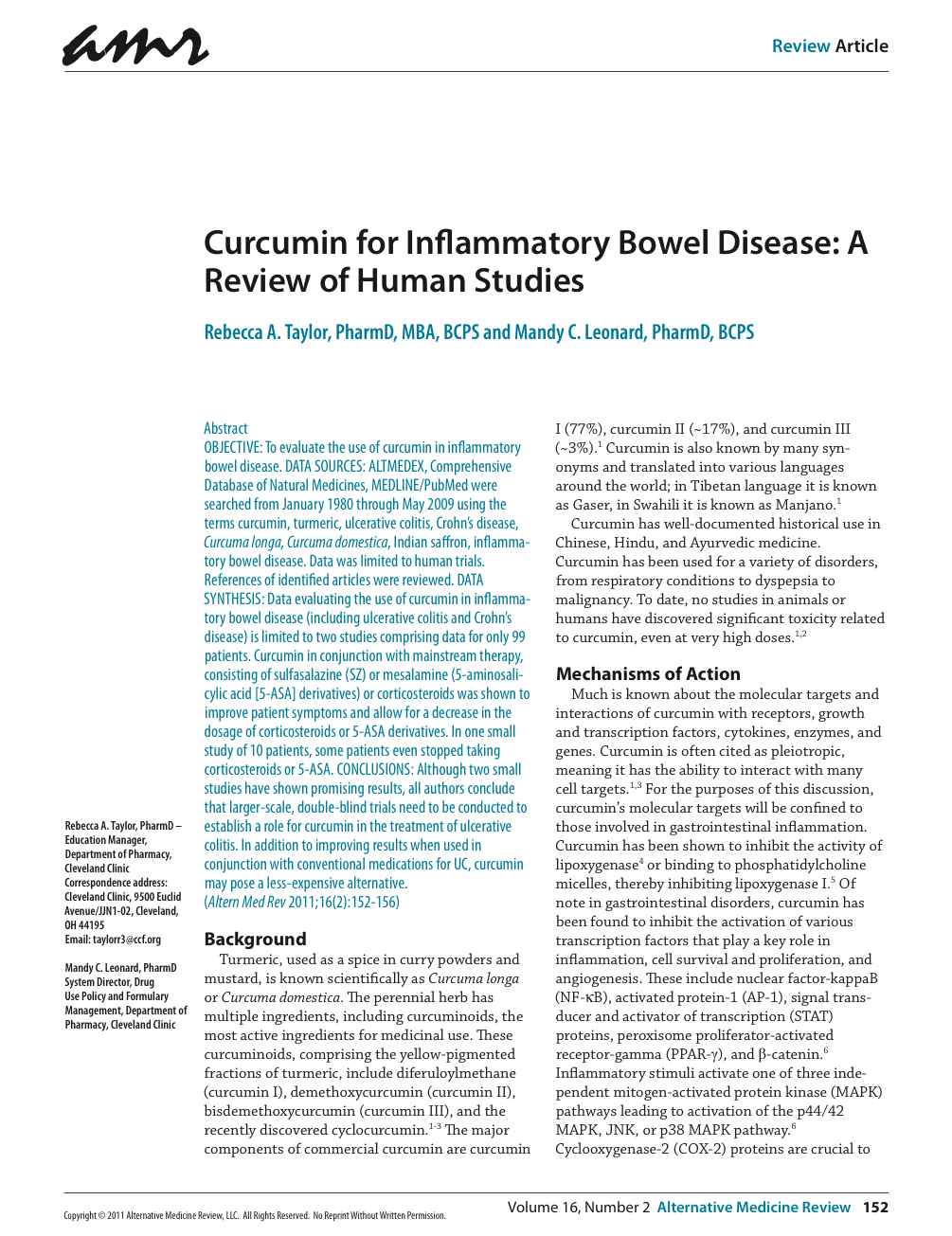Abstract
OBJECTIVE: To evaluate the use of curcumin in inflammatory bowel disease. DATA SOURCES: ALTMEDEX, Comprehensive Database of Natural Medicines, MEDLINE/PubMed were searched from January 1980 through May 2009 using the terms curcumin, turmeric, ulcerative colitis, Crohn’s disease, Curcuma longa, Curcuma domestica, Indian saffron, inflammatory bowel disease. Data was limited to human trials. References of identified articles were reviewed. DATA SYNTHESIS: Data evaluating the use of curcumin in inflammatory bowel disease (including ulcerative colitis and Crohn’s disease) is limited to two studies comprising data for only 99 patients. Curcumin in conjunction with mainstream therapy, consisting of sulfasalazine (SZ) or mesalamine (5-aminosalicylic acid [5-ASA] derivatives) or corticosteroids was shown to improve patient symptoms and allow for a decrease in the dosage of corticosteroids or 5-ASA derivatives. In one small study of 10 patients, some patients even stopped taking corticosteroids or 5-ASA. CONCLUSIONS: Although two small studies have shown promising results, all authors conclude that larger-scale, double-blind trials need to be conducted to establish a role for curcumin in the treatment of ulcerative colitis. In addition to improving results when used in conjunction with conventional medications for UC, curcumin may pose a less-expensive alternative. (Altern Med Rev 2011;16(2):152-156)







